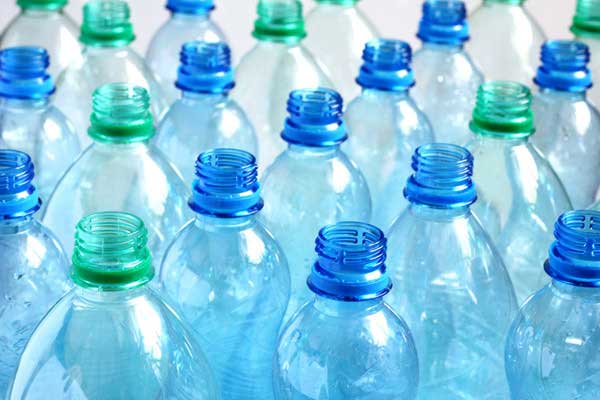Chemicals harm women and their babies in plastic bottles
Bisphenol-A, a controversial chemical used to harden packaging for many types of food in plastic bottles and cans can affect human reproductive health.
Bisphenol-A in plastic bottles affects women and the fetus
BPA (bisphenol-A) is an artificial chemical used to produce PC (polycarbonate) plastics that are still used to produce baby bottles, water bottles, plastic bottles and in the lining surface. in food and beverage cans can impair women's fertility.
BPA was discovered in many scientific reports of independent research groups. In an evaluation made by a group of 12 experts following the National Toxicology Program-NTP, BPA makes abnormal animal and brain development.
Just a small dose of BPA can have similar effects on fetal cells and young children, adversely affecting the fertility of both men and women , altering the function of the immune system, causing disorders micro and cognitive ability. In the long term it will damage the brain, causing some cancers, young children who are soon exposed to bisphenol-A will suffer permanent damage.
 Decreased fertility due to artificial chemicals BPA (bisphenol-A) in plastic bottles and cans
Decreased fertility due to artificial chemicals BPA (bisphenol-A) in plastic bottles and cans
In 2013, a group of chemical industries sued the state of California when state experts were trying to claim information about BPA that was harmful to human health. Although the experts won the lawsuit, the chemical was not yet listed as a toxic substance, spokesman Sam Delson of the Office Determines the Dangerous for Environmental Health. California state said.
Recently, plastic, canned and other BPA-containing bottles distributed in California may soon have to be labeled to indicate that this chemical is harmful to a woman's fertility . The Council of Natural Resources Defense has welcomed this decision very much - this is seen as an important step in protecting public health.
- Plastic bottles, air pollution and makeup reduce the infant's IQ
- The habit of re-using plastic everyone does but brings unexpected harm
- Don't inject plastic bottles to reuse many times, incalculable hazards
- The relationship between BPA chemicals in PC plastic bottles and their content in humans
- Plastic bottles also cause obesity and diabetes
- A small 3D printing device that can help build houses with plastic bottles is easier than ever
- Why is little beer packed in plastic bottles?
- Processing waste plastic bottles into phone cases
- The idea of water bottles made of jelly, decompose soon after use
- Carcinogenic bottles and packaging?
- Plastic bottles - gold mines in Taiwan
- We are about to wear clothes made from plastic bottles
 Green tea cleans teeth better than mouthwash?
Green tea cleans teeth better than mouthwash? Death kiss: This is why you should not let anyone kiss your baby's lips
Death kiss: This is why you should not let anyone kiss your baby's lips What is salmonellosis?
What is salmonellosis? Caution should be exercised when using aloe vera through eating and drinking
Caution should be exercised when using aloe vera through eating and drinking